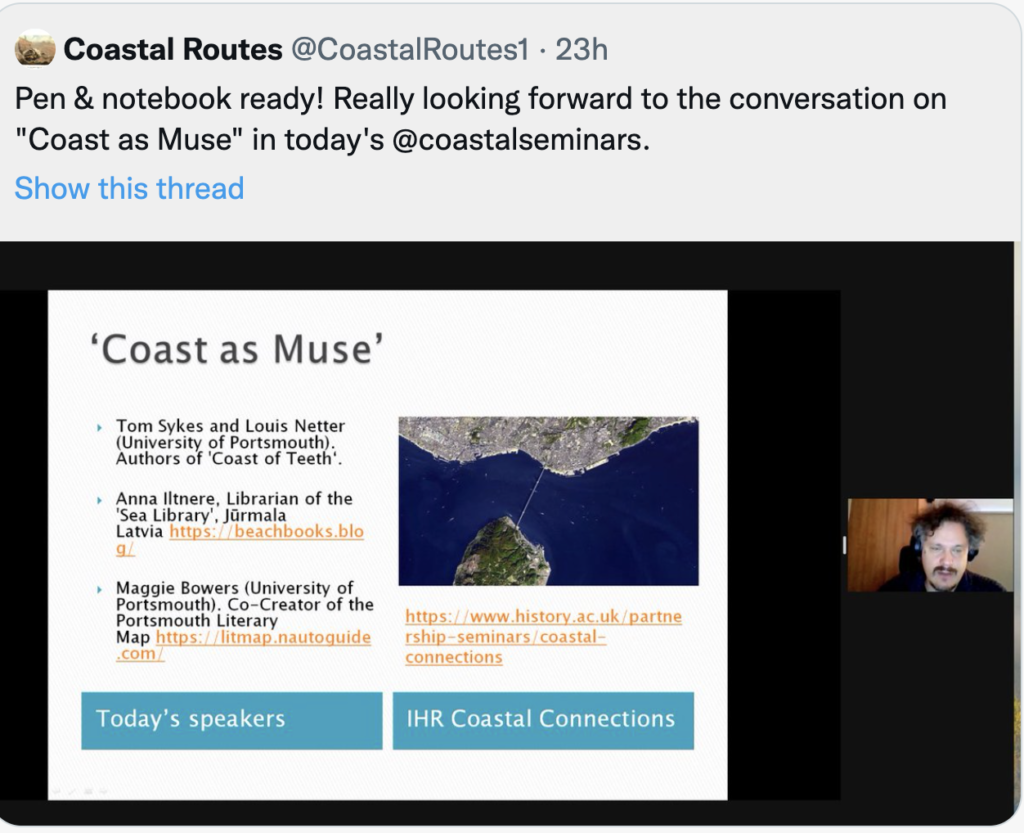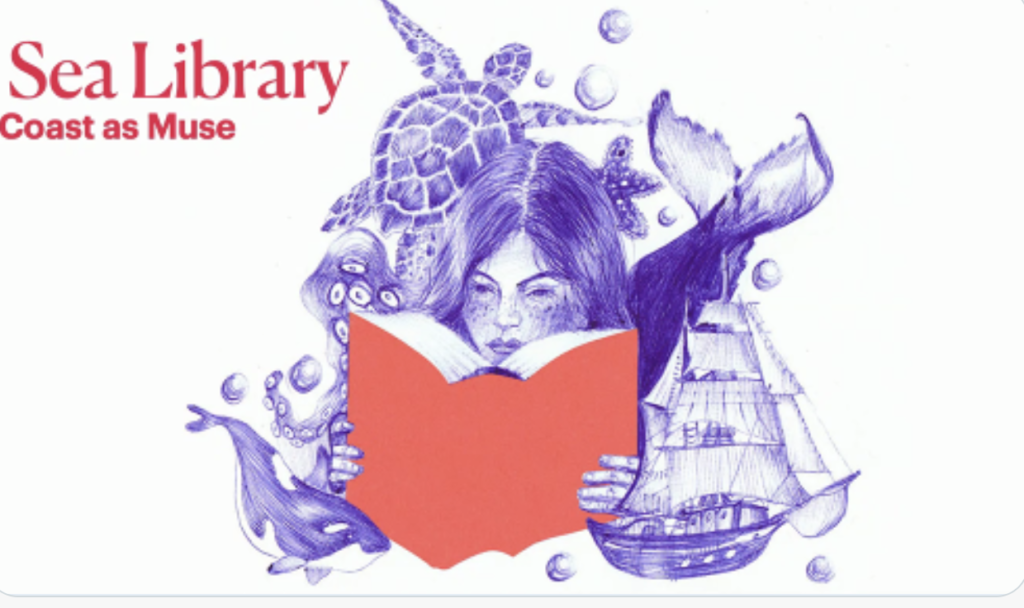
Thinking back on yesterday’s event in Zoomtopia, I can’t help but reach for all the oceanic superlatives. As the man says —
Delight, top-gallant delight is to him…whom all the waves of the billows of the seas of the boisterous mob can never shake from the sure Keel of Ages.
Ch 9: The Sermon
Melville’s never wrong, but I might say that the special delight of this online event wasn’t so much the fixity of the keel as the variety of the journeys. I’ll add a link to the recording when it’s available, and also to the great & thorough live-tweeting from James Smith via @coastalseminars. In this post I’ll just add a few tiny comments of my own on the presentations.
EDIT: Here’s the recording. Posted 21 Feb 2022.
The opener was a collaboration between artist Louis Netter and cultural theorist Tom Sykes. Their project, called “Coast of Teeth” (great title), explores English seaside towns that have seen better days. The theoretical parts involve conceptualizations of migration and touristic flows via the concept of “edgelands” (Iain Sinclair and Nicole Papadimitriou), among others. These ideas are juxtaposed alongside the gorgeous speed and energy of Netter’s “psychic portraits” and reportage-through-drawing. As a writer and theorist who’s always thrilled to collaborate with visual artists, as with Marina Zurkow in Oceanic New York and Vanessa Daws in Ocean, I was so impressed with the intensity and intimacy of the connections across modes. More like this, please!

The second project was Anna Iltnere’s Sea Library, a magical venue in coastal Latvia that many of us have come to know over the past few years via twitter and Anna’s blog. Anna told the story of the now-three year old Library as a kind of parable, a voyage of discovery into how the sea can change our lives. I’m always struck when reading her posts, or looking at the wonderful Sea Library bookmarks that Anna weaves by hand, by how closely the ideas and texts of the Sea Library engage with the fullness of human experience of the sea. It’s not just about words and ideas, though those are important, but also the physical qualities of the ocean and Anna’s palpable devotion to her family, her library, and their special corner of oceanic and coastal space. Muse is the word! [Here’s a link to her presentation in essay form via her blog.]
The last presentation was by Maggie Bowers, who presented the amazing Portsmouth Literary Map. Navigable on your phone as you walk the streets of Portsmouth today, the map layers rich literary and oceanic histories onto the streets and corners of this historical port town. I’ve never been to Portsmouth, and I didn’t realize how dense its literary history is. When I get there, I’ll be the one wandering around & staring at my phone, following the magic of this map!
I double-clutched in the chatbox trying to ask a question for the entire panel. (Q&A seems to be the hardest thing to manage in Zoomtopia, or maybe that’s just me.) What I wanted to get everyone to think about was how much walking figured in all of the projects. Louis and Tom visit their seaside towns on foot. Anna’s become a swimmer over the past few years, but much of her daily oceanic practice (like mine!) involves walking from her home to the water’s edge. Maggie’s interactive map facilitates a richly-informed, multi-modal way of walking through contemporary, historical, and imaginary Portsmouth.
So — what does walking have to do with it?
There’s lots to say about walking as the pace at which humans see our world, via Rebecca Solnit among others. I also love the story — maybe apocryphal? — that William Wordsworth composed his poems while walking at an even pace over level ground, while his friend Samuel Coleridge wrote while scrambling over fences, up hills, and into streams. Walking sets the pace and maybe also the rhythm of thinking, in many ways.
I also think, and Anna commented on this a bit in her answer to my awkwardly-posed question, that swimming provides a different rhythm that generates different kinds of thinking. But I’m still working on how the terrestrial animal’s gait helps us connect imaginatively to the marine environment. Is the coast the Muse, as this Zoom-seminar proposes? Or is it the water?
In either case – Sing in me, Muse, as the poet says.
Thanks to Melanie Basset and the @coastalseminars gang for organizing this wonderful session!